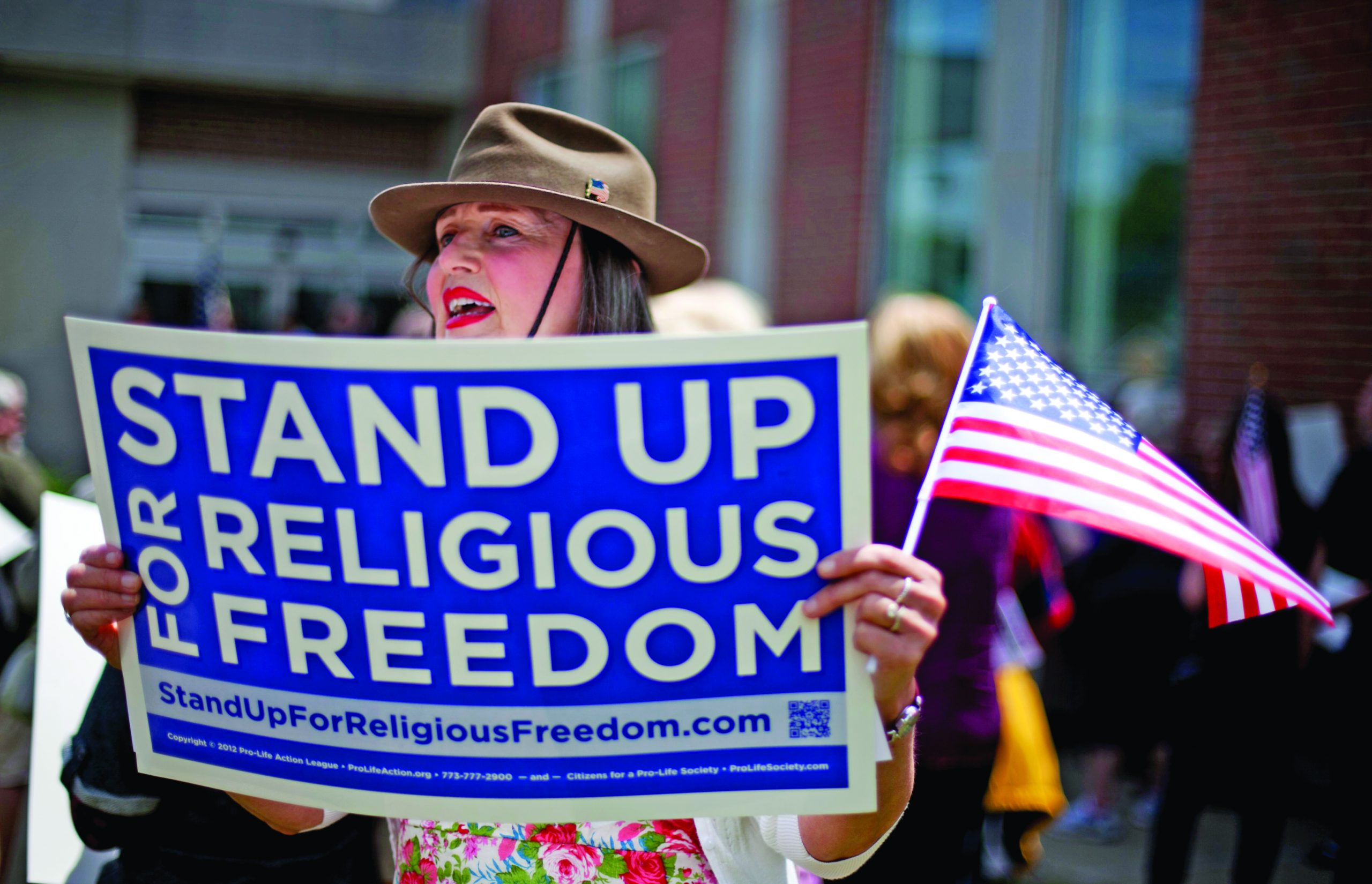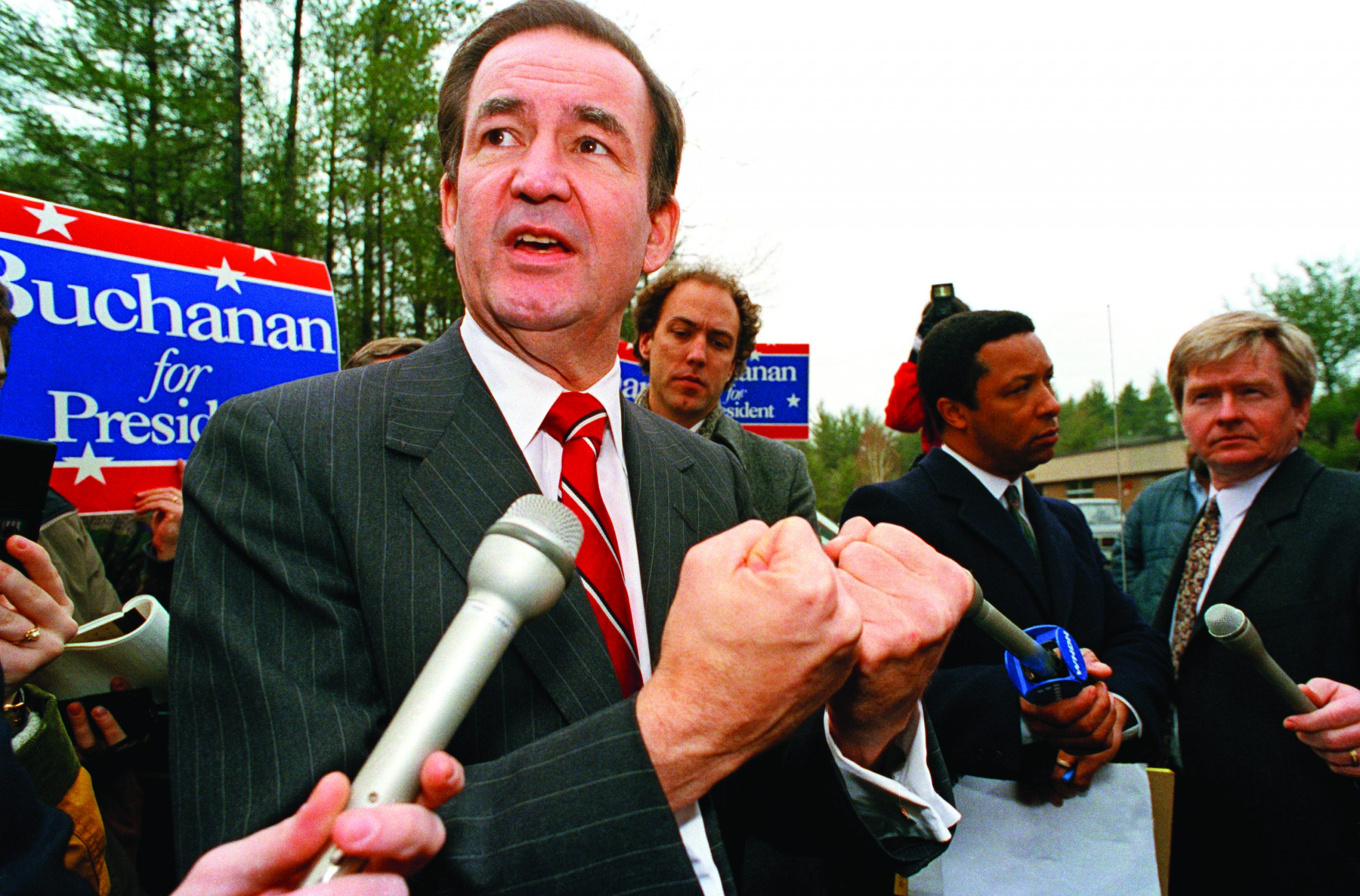During Holy Week this year, Walter Reed National Military Medical Center put a group of Catholic priests in an awkward position. The military hospital, which is located just outside of Washington, D.C., sent a cease-and-desist letter to Holy Name College, a group of Franciscans who had ministered to veterans there for nearly 20 years. Instead, the Catholic Archdiocese for the Military Services complained, the hospital abruptly decided to work with a secular defense contracting firm, whose spiritual services would not be adequate for Catholics at Walter Reed.
In the normal course of things, the sudden switch would not be too odd. Hospitals cancel contracts with service providers all the time. But, as military Archbishop Timothy Broglio noted in his statement protesting the decision, the stakes are much higher where the practice of faith is an issue. “I fear that giving a contract to the lowest bidder overlooked the fact that the bidder cannot provide the necessary service,” Broglio said, adding that as far as the sacraments are concerned, the offering of the Mass, the hearing of confessions, and the anointing of the sick, a secular firm, even if it wanted to, “cannot fulfill the statement of work in the contract.” The Catholic Church teaches that the reception of the sacraments, particularly last rites at the end of life, is necessary for entrance into heaven. Impeding the church’s ministers from administering those sacraments, Broglio said, is “an encroachment on the First Amendment guarantee of the Free Exercise of Religion.”

The complaint made headlines — the fact that the incident occurred in the days before Easter certainly helped for publicity — and a group of Republican lawmakers, led by Sen. Marco Rubio (R-FL) and Rep. Mike Gallagher (R-WI), sent the hospital a letter echoing Broglio’s concerns. Walter Reed waffled. First, the hospital said it would “review” its contract with the Franciscans. Then it decided to push forward with the defense contracting firm, Mack Global, reassuring Catholics that Walter Reed supports “all faiths for their religious, spiritual, and emotional needs including those of the Catholic faith” and that it would give special attention to the new contract “to ensure it adequately supports the religious needs of our patients, staff and beneficiaries.” And that was that. The problem remains unresolved.
At first glance, the incident at Walter Reed looks like a bureaucratic misdemeanor. But it’s only the latest in a series of jabs at the free exercise of faith, some small, some large, that have been a hallmark of President Joe Biden’s administration. Most of these incidents have not been as attention-grabbing as a massive military hospital giving a group of friars the boot during Holy Week. In fact, most have gone unnoticed outside the core group of Catholics and conservative Christians whom they directly affect. But since Biden took office in 2021, his administration has pushed a consistent and pervasive reinterpretation of religious liberty that, rather than protecting the free exercise of faith, has curtailed it wherever religious belief clashes with the administration’s own aims.
As is often the case with religious liberty, most of the clashes are either related to abortion, gay marriage, or the general swirl of sexual issues that follow in their wake. Earlier this year, the Department of Health and Human Services, for instance, introduced a proposal seeking to require religious hospitals and doctors to perform gender reassignment surgeries and abortions. (Two appeals courts in the past have nixed similar attempts, citing the First Amendment.) Another HHS proposal, also written this year, takes on the same issue — but this time putting healthcare providers in its sights, forcing companies to choose between following regulations or their religious beliefs. Religious liberty advocates claim that both rules are designed to drive Christian doctors away from medicine.
These are both par for the course for an administration that, since Biden took office, has made gender equality its cause célèbre, especially when little else seems to be going right. The day that he was inaugurated, Biden announced a raft of orders that, on the one hand, offered protection to gay and transgender people working with the federal government but, on the other, placed many religious people on the defensive. Around the same time, Biden also threw his support behind the Equality Act, a bill that has circulated around Congress for years and, if passed, would implement the same provisions of his executive orders as law. Several states have passed their own versions of the Equality Act, which, predictably, immediately provoked legal challenges from Christian groups concerned that they would be forced to employ people whose ways of life contradicted their deeply held beliefs. If passed in Congress, the Equality Act would undoubtedly create massive amounts of religious liberty litigation.
But the biggest clash over religious liberty issues has been in education, in which faith and debates over sex frequently overlap. Last summer, the Department of Education proposed Title IX revisions that would change the meaning of the statute’s prohibition on discrimination in schools “on the basis of sex” to something more along the lines of “on the basis of gender identity.” That creates problems for schools where administrators only count two, unchangeable sexes. Earlier this year, the department also proposed revising the so-called free inquiry rule to remove a section that banned colleges from denying faith-based student groups any rights, benefits, and privileges given to secular groups because of their “beliefs, practices, policies, speech, membership standards or leadership standards.” Schools that don’t comply would lose access to grants provided through the department. Critics say the rule change would effectively force religious groups to choose between publicly funded benefits and their faith.
If all of this sounds somewhat familiar, that’s because it is. Many of the Biden administration’s incursions on religious liberty are not as liberal as both the president’s boosters and his critics like to claim. They are largely reactionary. Biden’s orders are attempts to undo the protections set up through former President Donald Trump’s executive orders on protecting religious liberty. And, in turn, a great deal of Trump’s orders were reactions to former President Barack Obama’s orders. Many of Obama’s pushed back against Bush’s. And so on, back to the Reagan administration when the cause of religious liberty as it is understood now began to flower.
Federal treatment of religious freedom bears a striking similarity to the way in which the revolving door of Republican and Democratic administrations handle the so-called Mexico City Policy. This federal statute, which bans federal funding for foreign nongovernmental organizations that provide abortion services, has been enforced by every Republican president since Reagan. And it has been revoked by every Democratic president since Bill Clinton. It is a political football, but the rules are constant. In general, religious liberty protections work along the same lines: The rights of Catholics and other conservative Christians are aggressively protected during Republican administrations and are shunted off to the side and demeaned during Democratic ones. It’s a political on/off switch.
The most pronounced example of this cycle is the Little Sisters of the Poor case, which dragged out for nearly 10 years following the passage of Obamacare in 2010 through its latest Supreme Court showdown in 2020. In the beginning, the Little Sisters were forced under an Obama-era HHS mandate to offer contraceptives in their health insurance plans, a requirement that contradicts Catholic teaching on reproduction. The religious sisters took it up through the courts. But then, Obama left office and Trump came in. Everything changed overnight. The Little Sisters were granted an exemption from the Affordable Care Act’s contraceptives mandate. A number of states challenged the Trump rule, and the Little Sisters still had to fight it out in court. Eventually, the Supreme Court did give the Little Sisters the win, but on narrow lines. The court found that the contraceptive mandate under the Affordable Care Act was valid but also that the Trump administration’s exemptions were valid.

That result meant that the Little Sisters were protected — until some other president decided to remove the exemptions by executive order. And the next day, Biden promised to roll back some exemptions. “If I am elected, I will restore the Obama-Biden policy that existed before the Hobby Lobby ruling,” Biden said in reference to a previous case that had given broad faith-based exemptions, “providing an exemption for houses of worship and an accommodation for nonprofit organizations with religious missions.” It only took him three years, but in January, Biden announced that he was doing just that: removing employers’ faith-based exemptions from the mandate. If a Republican takes office in 2025, he will probably restore the Trump rules. The cycle continues. Rinse and repeat.
There is one important way, however, that federal treatment of religious liberty does not work like the Mexico City Policy. With each successive administration, the stakes are higher and the fights are nastier. Republicans and Democrats are both to blame here. In 1992, Pat Buchanan warned of a “cultural war” that would consume the country after the United States’s triumph in the Cold War. He was referring to Clinton and then-novel ideas about gay rights and perceived attacks against faith in public life. Buchanan’s militant formulation proved popular with both parties, and ever since, Republicans and Democrats have framed cultural issues, into which religious freedom is inextricably bound, as a war of attrition, with each side more brutally punishing its enemies when it controls the levers of power. For those with serious religious beliefs, it’s an unenviable position: Each time they are offered protections (that ought to be guaranteed by the First Amendment anyway), they can be assured that when the other side takes power, the punishment will be worse than before.
CLICK HERE TO READ MORE FROM THE WASHINGTON EXAMINER
It’s hard to say if there’s a way out of this cycle. The difficulty is that finding an off-ramp to the ever-intensifying situation was probably best formulated by Justice Brett Kavanaugh in his dissent in Bostock v. Clayton County, a landmark case that found that Title VII of the Civil Rights Act not only protects employees from discrimination on the basis of “race, color, religion, sex and national origin” but also on the basis of gender identity. At the time, critics of the decision pointed out that the decision virtually invited unending clashes between gay and transgender people and those with firmly held Christian beliefs. Kavanaugh anticipated those criticisms and warned that if both sides keep raising the stakes, they will find themselves in an unwinnable war.
“It seems like we should be looking, where possible, for win-win answers,” Kavanaugh wrote. “And it seems like neither side is going to win entirely, given the First Amendment on the one hand and given Obergefell on the other.”
